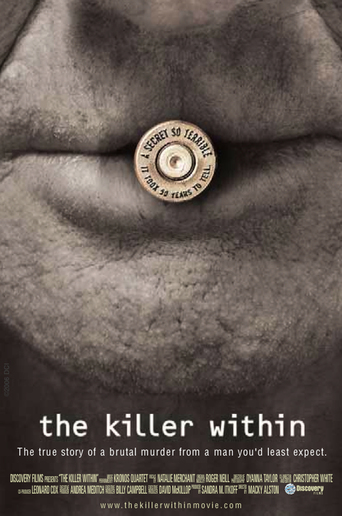rotcohen
Tonight was the world premiere of the documentary, 'The Killer Within', a film that was on my shortlist from the very beginning, largely because I have a philosophical soft spot for inquiries into guilt, a residual byproduct of my love for Dostoevsky. I expected this film to be reminiscent of Raskolnikov's odyssey into murder and redemption in 'Crime and Punishment' or of the killer who confesses to father Zosima in 'Brothers Karamazov'; a pensive study of a killer and the effect such a stigma has on a lifetime of behavior. For the most part, the film lived up to this expectation. In a not-so-direct way the documentary serves as a suitable companion piece to the novels of Dostoevsky, but it strays somewhat from his conclusions. The protagonist of the documentary, Bob Brechtel, is a blight to Dostoevsky's view that the interconnectedness of life is so fundamental that no man could kill without ethical ramifications on his/her conscience. Bob has killed and kept his secret from many people for fifty years, and remains stoically incapable of accepting full responsibility for his actions. A comment posed in the Q&A spoke of our want of definitive closure with respects to his redemption, something the film, and indeed Bob's life and those he affects, remain without.It is not that Bob is unrepentant for what he did, but rather, his repentance is mired by his claim of mental illness, and this incomplete acknowledgement, captured in the documentary, sits uneasily with those closest to him. When attending Strathmore University in 1955, Bob killed another student in his sleep on what was intended to be a premeditated shooting spree in his dormitory. By his account, an act of temporary insanity was provoked by the bullying he endured from his fellow classmates. The director takes an even-handed look at both sides of argument as to Bob's innocence or guilt, leaving the audience with more questions than answers, in what turns out to be an immensely complex and engrossing study of one man's act of violence.Presently, Bob is a well-loved family man and professor of psychology, who by his meek kind-hearted behavior seems the antithesis of a killer. Through an act of clemency by the victim's parents, he was not convicted for the crime but spent five years in a mental institution only to be released with a quiet reserve regarding the whole incident. His two daughters were at the premiere and spoke of their frustration with their father's inability to apologize to the living family member of the deceased. Throughout the documentary, Bob admits he is remorseful but a void of emotion remains in every statement he makes, his chilling composure even when confronted with the scenes of the crime fifty years later make one think this is more than a resigned acceptance, but perhaps a desperate coping mechanism keeping at bay a flood of emotion linked to the event. Despite the anti-climax of his responses throughout the film there is something even greater in this banality: Bob challenges the traditional concept of a sinning man in need of cleansing, perhaps against his best efforts, something he alludes to from time to time. His sins do not seem to eat away at him, nor have they been released from his confession to the world, no noticeable act of catharsis appears to have happened, no matter how desperately his family tries to incite it. Bob is an enigma whose chilling transgression of our (or some of our) ethical sensibilities leaves us struggling to comprehend the meaning of his actions, and by extension, the meaning of any act of violence if no universal moral standard applies.With respects to the documentary itself, admittedly dwarfed by its subject, it still is a superbly crafted though quietly laid out production. There are ways this could have been exploitive and cheap, but the director, Macky Alston, was able to maintain some dignity to the families in his portrayal while opening the doors to conversation regarding the ethical ambiguity of the subject. Macky did hint that his hands were tied somewhat with respects to how far he could go with what he choose to show in the film, limited by the desires of both victimized families. However, what remains in the film is a depth of examination rarely given, where most of the principal individuals and places were available to be mined for the purposes of the story. Most incredible of all is the documented confessions by Bob to those people outside his immediate family and their direct reactions to the news.Highly recommended.Grade: 8/10

